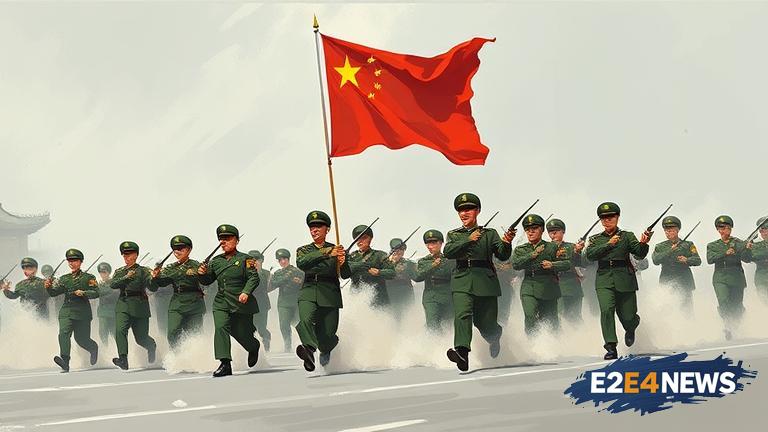China has reacted with anger and disappointment to Japan’s request to world leaders to boycott the Chinese People’s Liberation Army (PLA) World War II military parade. The parade, scheduled to take place on September 3, is intended to commemorate the 70th anniversary of Japan’s defeat in World War II. China views the parade as a celebration of its victory over Japan and a demonstration of its growing military might. Japan, on the other hand, sees the parade as a provocative move by China to assert its claims over disputed territories in the East China Sea. The Japanese government has requested that world leaders refrain from attending the parade, citing concerns over China’s military expansion and its impact on regional stability. China has responded by accusing Japan of trying to distort history and undermine its sovereignty. The Chinese government has also criticized Japan for its own historical grievances, including its refusal to acknowledge its wartime atrocities. The dispute between China and Japan has significant implications for regional security and the global balance of power. The United States, a key ally of Japan, has also been drawn into the dispute, with the US Secretary of State John Kerry urging China to refrain from provocative actions. The European Union has also expressed concerns over the rising tensions between China and Japan, calling for restraint and dialogue. The parade has also sparked controversy within China, with some critics arguing that it is a waste of resources and a distraction from more pressing domestic issues. Despite the controversy, the Chinese government has vowed to press ahead with the parade, which is expected to feature a massive display of military hardware and personnel. The parade will be attended by several world leaders, including Russian President Vladimir Putin and South Korean President Park Geun-hye. The event is seen as a major propaganda coup for the Chinese government, which is seeking to boost its international profile and demonstrate its military prowess. However, the dispute with Japan has overshadowed the parade, with many analysts viewing it as a symbol of the deep-seated tensions between the two countries. The historical grievances between China and Japan date back to the early 20th century, when Japan invaded China and committed numerous atrocities, including the Nanking Massacre. China has never forgotten these historical wounds, and the parade is seen as a way of commemorating its victory over Japan and asserting its sovereignty. The dispute has also highlighted the complex web of alliances and rivalries in the region, with the United States, Japan, and South Korea forming a loose alliance to counterbalance China’s growing military power. The European Union has also been drawn into the dispute, with several EU countries expressing concerns over China’s military expansion and its impact on regional stability. The parade has also sparked a debate over the role of history in international relations, with some arguing that it is a useful tool for promoting national identity and others viewing it as a source of conflict and tension. Overall, the dispute between China and Japan over the PLA WWII military parade has significant implications for regional security and the global balance of power, and is likely to continue to be a major source of tension in the months and years to come.
